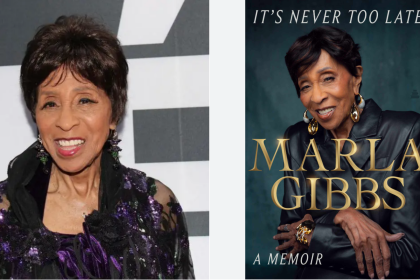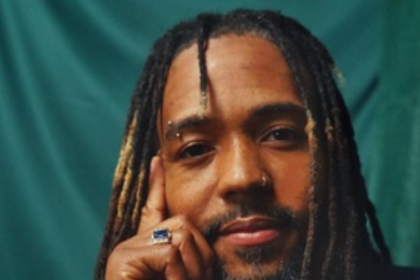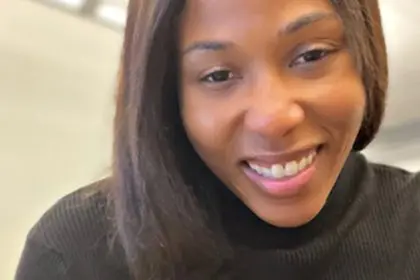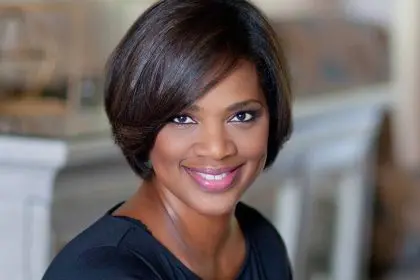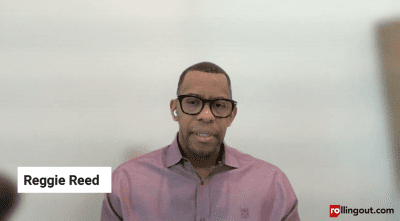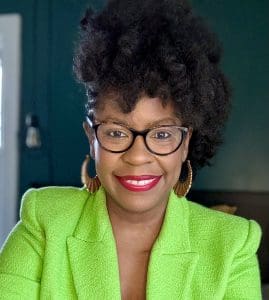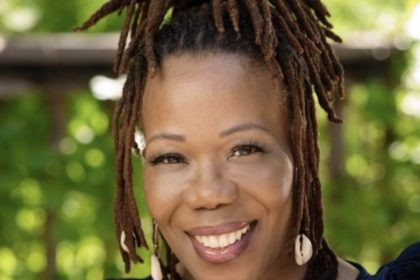Chenelle DeLoach embodies the modern renaissance woman, seamlessly blending her entrepreneurial vision with heartfelt advocacy as she guides women toward organization and empowerment through her company, Che Pressed Designs & Stationery, where her custom-crafted planners, journals, and motivational stationery products serve as daily companions for women determined to maximize their potential while navigating life’s complexities with grace and intention.
Her journey extends beyond product creation into the realm of profound healing, evidenced by her revealing memoir, “I Am Safe With Me. ” It chronicles her navigation through childhood trauma toward self-acceptance and offers readers a compassionate roadmap toward their emotional freedom.
DeLoach recently spoke with rolling out about her new book.
What prompted you to share your personal journey through childhood trauma in “I Am Safe With Me”?
A lot of people can resonate with my story. I know for sure that a lot of what I discuss in the book happens in the Black family. And it’s a step in my healing journey. I wanted to share that with other people because I know that they can resonate with my story.
How has writing this book affected your healing process?
It has helped me out a lot, made me feel more free, and the anxiety has mainly disappeared. I wouldn’t say it’s gone all the way because, you know, there will always be remnants of it for the rest of my life, but it no longer controls my life. I control it now. I know where to place it in my life so that it does not affect me as much as it did in the past.
What specific coping mechanisms discussed in your book have readers found most helpful?
Journaling and just getting it out. Writing is a form of therapy for me, and when I write, I can say the things that I can’t verbally say. I can write them down and get them out that way. And once I get it out, I let it go. I’ll write it down and tear it up. And once I tear it up and throw it away, I’m done with it.
In what ways do you hope your book changes the conversation around childhood trauma?
I hope it gives other people a voice. Holding all that stuff in can be detrimental to your health, maybe it will open more conversations about it; you know, there is abuse in our families, and it’s not discussed, and no one should feel like they don’t have a voice. People understand that your voice matters, you matter, and your feelings matter. Sometimes, the abuse or molestation in your family is usually a family member. And so you don’t want to talk about it. You don’t wanna tell on your uncle or your brother or whomever. Well, what about me? What about that person that it happened to? Your story deserves to be told. You deserve to be heard.
What was the most challenging aspect of reliving these experiences during the writing process?
Feeling that pain all over again. I hadn’t healed from all this stuff. I had just pushed it in the back of my head and just went through life. It’s like I began to realize how much I had suppressed. There were things I had forgotten about, but as I started writing my book, I realized it was much more profound than I remembered.
How do you balance vulnerability with maintaining appropriate boundaries when discussing personal material?
I pray and think before I react now. I’m not reacting to emotions, negative emotions. I think about it and decide how to respond to something. I want to give that energy because everybody doesn’t deserve it, and you can’t always trust everybody with that information. I pray for the discernment to ask God, “OK, so where should I put this? Where should I put this person, and how much should I discuss with this person?” So it’s just like asking God for guidance.
What resources would you recommend for readers who recognize their trauma while reading your book?
Seek a therapist. Find that trusted person you know you can trust with your deepest secrets and just get it out. I would say journal or find what best suits you because my method or somebody else’s method may not be for you. You can reach out to speak with therapists and hotlines and talk through these things; you don’t have to hold it in.
What’s next for you as an author and advocate in the trauma recovery space?
I will continue my healing cause; healing will always be a part of my life. Even though I’m healing from the things that happen, don’t mean that I will never think about them again. I’m open to having conversations, whether it’s with men or women, be that ear for people to talk to. I put myself out there for people to have that safe space. I look forward to discussing my book in different spaces. I’m open to interviews and whatever I can do that can help someone else through this journey. I want to help somebody else be free like I am.
Tell us a little bit about your business, Che Pressed.
Che Pressed and Designs is a stationery business, but it’s also a customs business. So, I do custom items, but my main focus is stationery, journals, and notebooks. I create journals and notebooks for African American women. Of course, I will make anything for anybody, but I focus on African American women. Giving us that space and voice allows us to continue to realize how great we are, how dope we are, and that we matter, understand how dope we are. Understand our power and our voice, so that is my goal, which is to ensure that I continue giving African-American women a voice just to be themselves.


